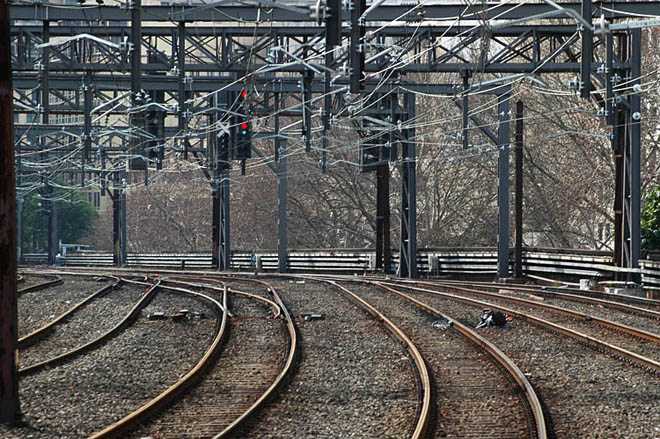Maoist rebels killed a policeman and triggered a series of explosions on rail tracks in eastern India Tuesday, the second day of a general strike called to protest a military offensive, officials and news reports said.
The incidents came hours after the rebels blew up part of the tracks on a key railway line connecting the region with the national capital New Delhi.
Maoists blew up a section of the track in the eastern state of Bihar state minutes before the Rajdhani Express train from Orissa's capital Bhubaneshwar and bound for Delhi was due to cross late Monday, railway spokesman Dilip Kumar said.
"The driver applied brakes when he heard the sound of the blast," Kumar said. "Ten carriages and the engine of the train derailed. But there were no casualties or injuries as the train was at slow speed and the anti-collision device was effective."
Several long-distance trains in the region were delayed.
The rebels called a strike in parts of seven states were they are most active, to protest military operations in the region.
Reports of attacks came in from Jharkhand, Orissa and West Bengal Tuesday.
A policeman died in Jharkhand state's Sareikela-Kharsawan district after a group of rebels fired at a patrolling team, the PTI news agency reported.
Suspected Maoists abducted four traders in Jharkhand's Bokaro district.
In Orissa, guerrillas blew up tracks in Sundergarh district early Tuesday, disrupting rail services on the main route linking the east with financial hub Mumbai.
"The tracks were blown up using land mines. Five wagons of a freight train derailed. Officials and teams have reached the spot and repair work is on," local railway official VK Srivastav was quoted as saying.
Rebels also blew up parts of rail tracks in Jharkhand's Latehar and Ranchi districts.
They struck again in West Bengal Tuesday, blowing up a section of the track near Jhargram in West Midnapore district, after a similar attack in the same district Monday.
According to the Home Ministry, the rebels are active in 200 of India's 626 districts, and were virtually in control of 34.
The rebels claim they are fighting for the rights of the tribal people, the poor and the landless.
More than 1,100 people were killed in 2009 in violence linked to the Maoist insurgency, which Prime Minister Manmohan Singh has described as the gravest internal security threat facing India.
Indian insurgents target rail tracks on second day of strike
Maoist rebels killed a policeman and triggered a series of explosions on rail tracks in eastern India Tuesday, the second day of a general strike called to protest a military offensive, officials and news reports said.






